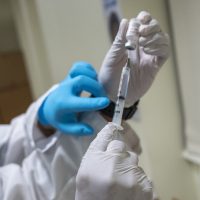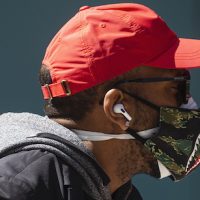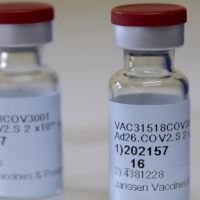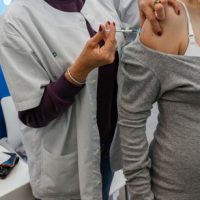Common side effects of the COVID-19 vaccines include injection site pain, fatigue, headache, muscle pain and fever.
Data from the Pfizer/BioNTech and Moderna trials also show the side effects included joint pain and chills. These reactions are more likely after the second dose of those vaccines, given several weeks after the first, and are more common and severe in younger people.
Misconception: COVID-19 Misconceptions
How do we know what ingredients are in the COVID-19 vaccines?
The full ingredient list for any authorized or approved COVID-19 vaccine can be found on the Centers for Disease Control and Prevention website and in a variety of documents on the Food and Drug Administration’s website, including in a fact sheet for vaccine recipients that’s available in numerous languages.
Both the Pfizer/BioNTech and Moderna vaccines contain messenger RNA,
How do we know vaccines are safe?
No vaccine or medical product is 100% safe, but the safety of vaccines is ensured via rigorous testing in clinical trials prior to authorization or approval, followed by continued safety monitoring once the vaccine is rolled out to the public to detect potential rare side effects. In addition, the Food and Drug Administration inspects vaccine production facilities and reviews manufacturing protocols to make sure vaccine doses are of high-quality and free of contaminants.
How safe are the COVID-19 vaccines?
More than half a billion doses of COVID-19 vaccines have now been administered in the U.S. and only a few, very rare, safety concerns have emerged. The vast majority of people experience only minor, temporary side effects such as pain at the injection site, fatigue, headache, or muscle pain — or no side effects at all. As the Centers for Disease Control and Prevention has said, these vaccines “have undergone and will continue to undergo the most intensive safety monitoring in U.S.
How effective are the COVID-19 vaccines?
All of the authorized and approved vaccines are effective at preventing severe COVID-19.
Against earlier forms of the coronavirus, the vaccines were highly effective at preventing symptomatic illness. For example, clinical trials for the Pfizer/BioNTech and Moderna mRNA vaccines and the protein-based Novavax vaccine found each reduced the risk of getting sick by more than 90%.
Subsequent studies have demonstrated that the vaccines are effective under real-world conditions.
How were the COVID-19 vaccines tested?
The authorized or approved vaccines were initially tested in animals and early phase clinical trials, in which scientists evaluated different doses, checked for the expected immune responses and monitored for potential safety issues. To find out whether the shots prevent disease and are safe, the vaccines that passed the first set of tests were then evaluated in phase 3 trials.
The Moderna and Novavax phase 3 trials each included about 30,000 volunteers,
Pace of U.S. Vaccinations vs. the World
The Evolving Science of Face Masks and COVID-19
A Guide to Johnson & Johnson’s COVID-19 Vaccine
No Evidence Vaccines Impact Fertility
Q: Do the COVID-19 vaccines cause infertility?
A: There’s no evidence that approved vaccines cause fertility loss. Although clinical trials did not study the issue, loss of fertility has not been reported among thousands of trial participants nor confirmed as an adverse event among millions who have been vaccinated.



